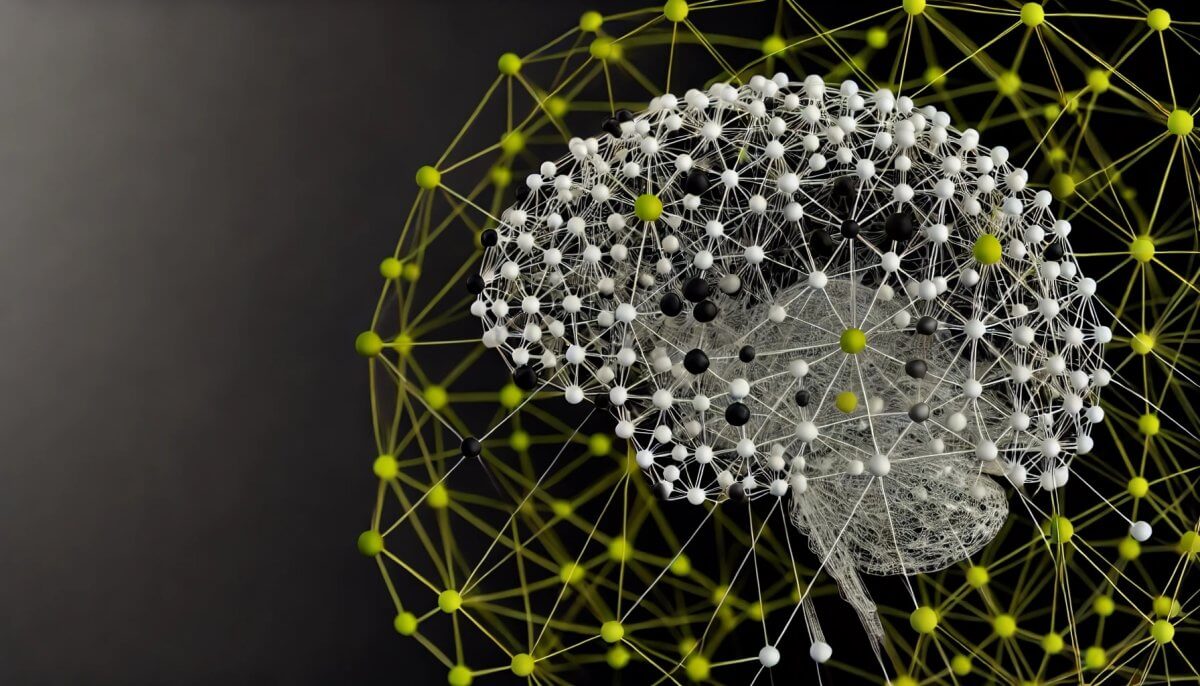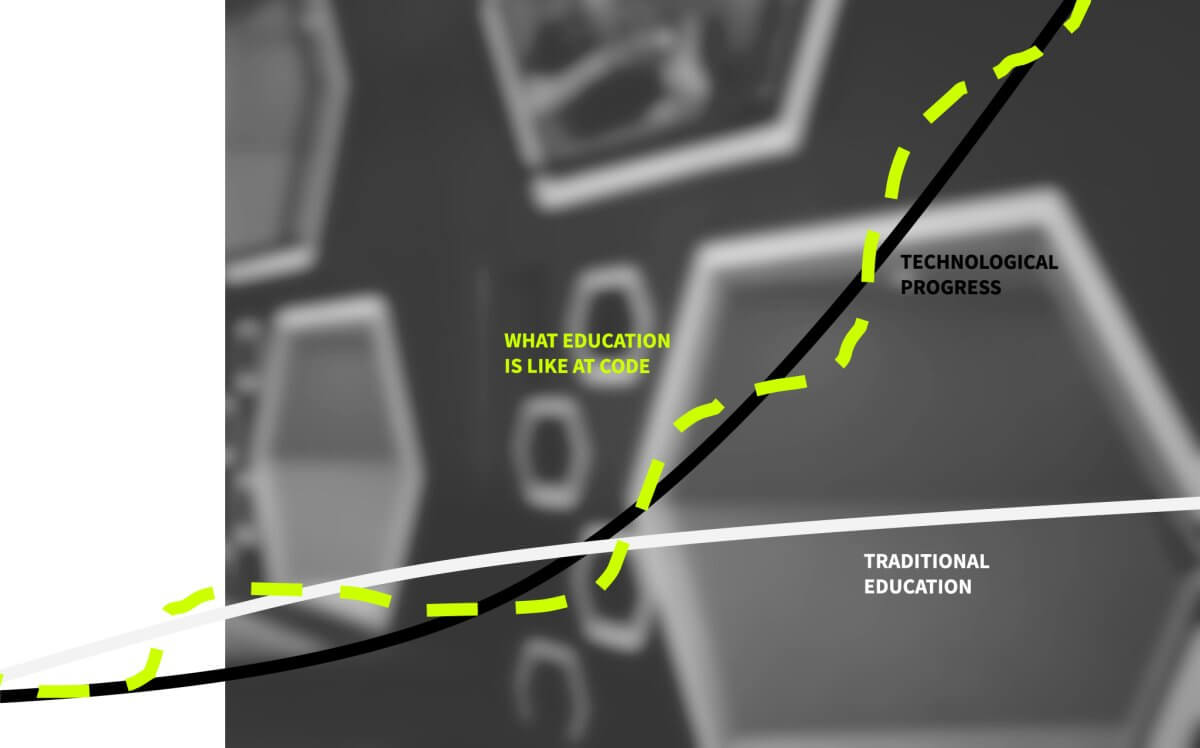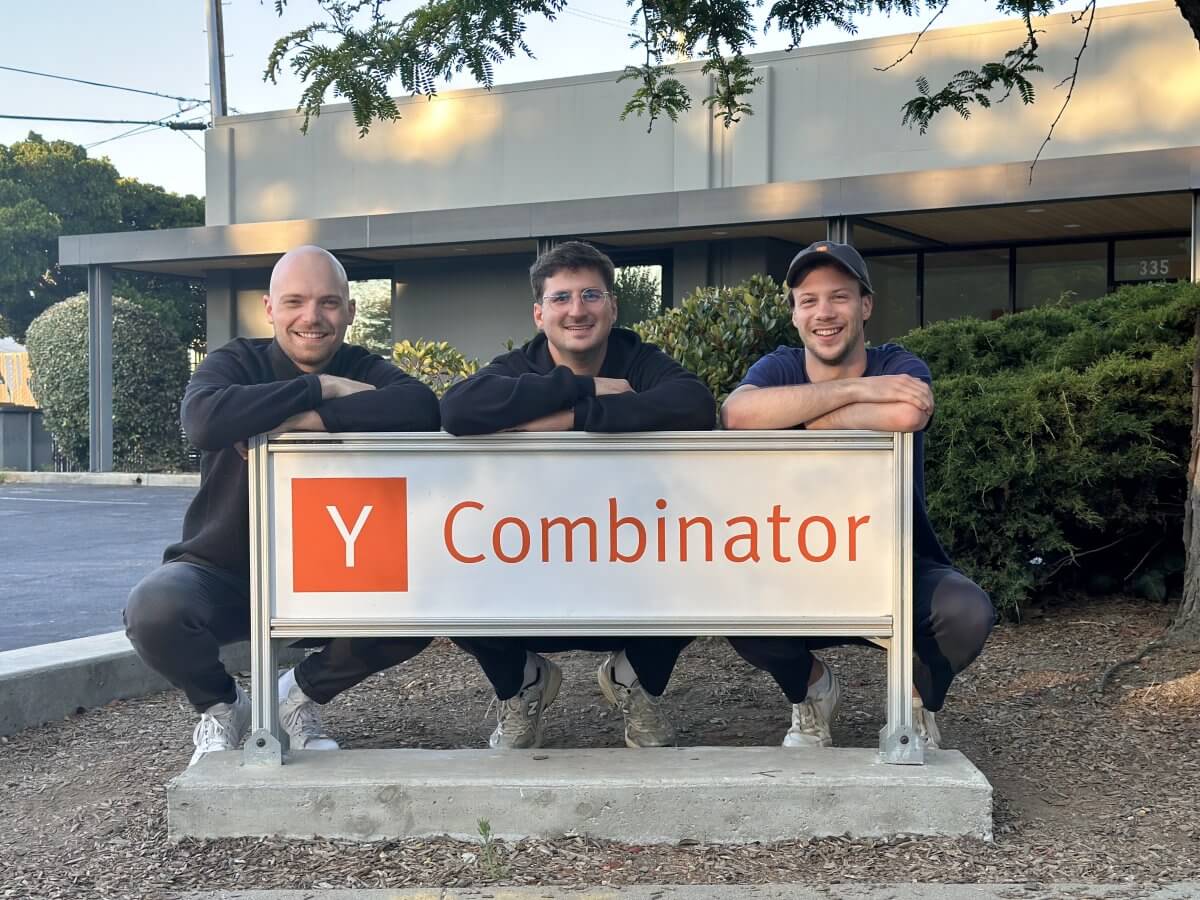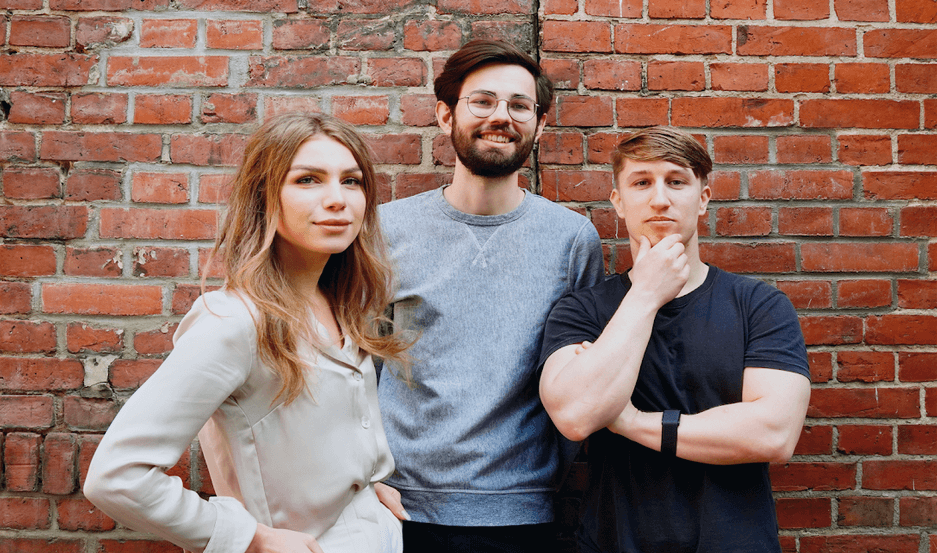
We believe the world has entered the Age of AI, destined to revolutionize every industry and sector.
The visionaries and technology experts behind CODE anticipated this shift long ago – establishing a university designed to equip students with the skills to seize opportunities, leverage AI to their advantage, and drive innovation in this field together.
An integral part of our curriculum and learning concept
At CODE, Artificial Intelligence isn’t just an academic topic – it’s a core element of everyday campus life. Students can choose from a variety of AI-related modules, such as Artificial Intelligence Basics, Machine Learning, Data Science, Artificial Intelligence in Design, and AI for Product Managers. Additionally, our Curiosity-Driven Education approach allows students to tailor their learning experience to their interests. If you are passionate about AI, you can align most modules with AI-focused projects.
But it’s more than just about staying current. Our learning concept is designed to cultivate both the skillset and mindset needed to adapt to constant change and stay ahead of the curve. Instead of focusing solely on hard skills that quickly become outdated in the ever-changing world of AI, we emphasize critical thinking, problem-solving, and the ability to navigate and shape the future of this rapidly evolving digital landscape.

We focus on all dimensions of AI
 Technological
TechnologicalWe delve into the core technologies behind AI, exploring mechanics like machine learning and natural language processing.
 Mindset
MindsetWe nurture a growth mindset to encourage critical thinking, flexibility, and adaptability as well as ethical use of AI.
 Impact
ImpactWe assess AI’s profound impact on business and society, highlighting its role in driving innovation, efficiency, and sustainable growth.
AI startups and projects by CODE students & alumni

Langdock
Langdock is a YC-backed AI platform that enhances team productivity by integrating generative AI with a company’s internal data. Founded in 2023 by the three CODE alumni Lennard Schmidt, Jonas Beisswenger and Tobias Kemkes, Langdock raised $3 million in a funding round led by General Catalyst and La Famiglia. The platform helps companies manage and control the usage of AI tools like ChatGPT in a compliant manner, enabling employees to share conversations and increase productivity safely. Langdock also offers a unified API for accessing all models and supports integration with various tools and apps.
AULIOS
AULIOS is an AI-based platform designed to create professional light shows for events such as clubs, festivals, and concerts. It generates light shows based on audio inputs, making it highly versatile and easy to set up.
The story behind AULIOS began when the founders, Alexander Gerick and Marius-Julian Marx, needed better lighting for Alex’s 18th birthday party. Dissatisfied with existing solutions, they decided to create their own. The project gained momentum after starting their studies at CODE and therefore moving to Berlin where they gathered positive feedback from DJs and club owners. This led them to pivot from a smart home focus to developing a B2B solution for clubs and events.

traide AI
traide AI was founded in 2021 by CODE student Philipp Friebertshäuser, CODE lecturer Hendrik Niemann, and Leonie Althaus. The company specializes in streamlining customs processes for businesses using AI. Their platform automates the classification and management of product data to ensure compliance with international trade regulations, making the process more efficient and secure.
In August 2023, traide AI secured a seven-figure funding round led by High-Tech Gründerfonds (HTGF), with participation from Smart Infrastructure Ventures, Prequel Ventures, and several renowned angel investors.
Recent publications and research
Technical Design Space Analysis for Unobtrusive Driver Emotion Assessment Using Multi-Domain Context
CODE alumn Luis Coelho wrote his bachelor’s thesis on using machine learning to recognize driver emotions in cooperation with our partner company Porsche. Luis, along with CODE professor Ulrich von Zadow and a team of researchers from Porsche, then turned this into a paper in one of the best journals in human-computer interaction. What a success story and congratulations for such an outstanding graduation, Luis!
Bethge, D., Coelho, L. F., Kosch, T., Murugaboopathy, S., von Zadow, U., Schmidt, A., & Grosse-Puppendahl, T. (2023). Technical design space analysis for unobtrusive driver emotion assessment using multi-domain context. Proceedings of the ACM on Interactive, Mobile, Wearable and Ubiquitous Technologies, 6(4), Article 159, 30 pages. https://doi.org/10.1145/3569466
Programming Education and Learner Motivation in the Age of Generative AI: Student and Educator Perspectives
By CODE professors Samuel Boguslawski, Rowan Deer and Mark Dawson
Boguslawski, S., Deer, R., & Dawson, M. G. (2024). Programming education and learner motivation in the age of generative AI: student and educator perspectives. Information and Learning Sciences. Advance online publication. https://doi.org/10.1108/ILS-10-2023-0163
Evaluating an AI algorithm to detect Bird Sounds for the Dawn Chorus App
Interview by CODE professor Florencia Noriega, who supported the Dawn Chorus App team incorporating an AI algorithm (BirdNet) to automatically detect birds from recordings uploaded by users. Her role involved evaluating the performance of the BirdNet algorithm in detecting birds from the dawn chorus dataset. Evaluating an algorithm’s performance is crucial to assess its effectiveness on such a dataset and to choose appropriate model parameters. In May, the Dawn Chorus app released its first version with AI bird sound recognition. Additionally, CODE students Kinga Janossy and Can Turgay developed an annotation tool for the Dawn Chorus project. This tool is supporting researchers collect quality data to train and improve AI bird detection models.
Forms of Decision Models in Organisations [Manuscript Submitted for Publication]
By CODE professor Florian Grote
The social world of communication is built on decisions. Many of these are microscopic operational decisions, when choosing what to say next in a discussion to keep the conversation going or to use tactics to win an argument. Other decisions might seem big in comparison, when it comes to the direction in which a company is developing its strategy. Such decisions are not taken individually, but they get made in social processes. Organisations are building elaborate decision models, representations of assumed scenarios following from the choices faced in the decision, and are increasingly turning to generative AI in the form of LLMs to make their decisions models more powerful and more dynamic. The paper is an investigation of the basal forms of decision models, their use, and the potential of adding an operational AI perspective to them.
Our commitment to advancing knowledge in Artificial Intelligence extends beyond our degree programs
We understand the importance of continuous learning and professional development, which is why we also offer executive education programs tailored for professionals looking to deepen their understanding of AI.